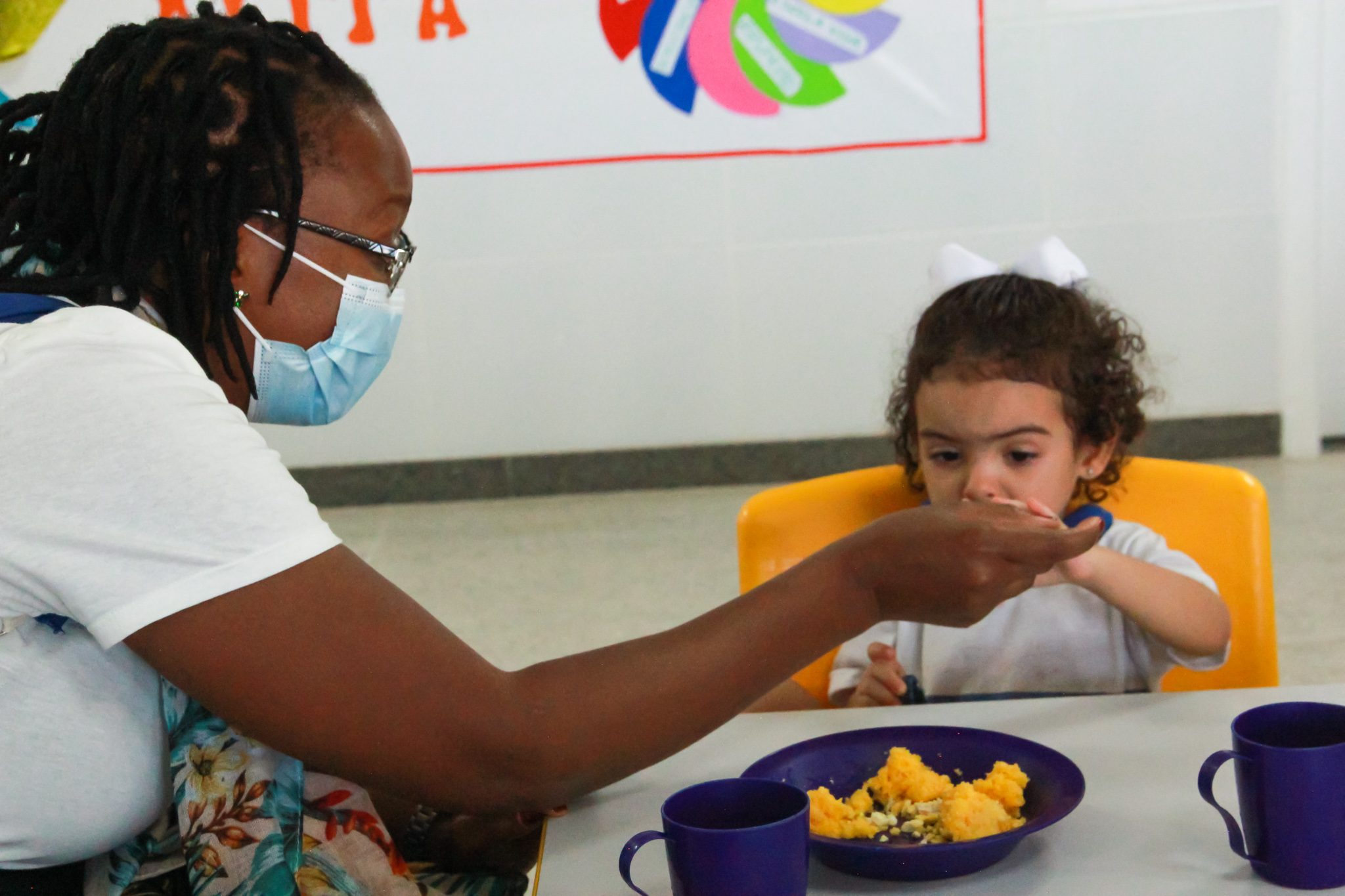 This Wednesday, August 31, is Nutritionist’s Day in Brazil, a date that marks the birth of the Brazilian Association of Nutritionists (ABN) in 1949, now known as the Brazilian Nutrition Association (Asbran). The WFP Centre of Excellence against Hunger Brazil celebrates all those professionals who dedicate their careers to helping people achieve a healthier and more nutritious diet.
This Wednesday, August 31, is Nutritionist’s Day in Brazil, a date that marks the birth of the Brazilian Association of Nutritionists (ABN) in 1949, now known as the Brazilian Nutrition Association (Asbran). The WFP Centre of Excellence against Hunger Brazil celebrates all those professionals who dedicate their careers to helping people achieve a healthier and more nutritious diet.
Besides consulting rooms, clinics and hospitals, nutritionists are also active in the National School Feeding Programme (PNAE) and are essential to ensure adequate school meals for students all over the country. They are in charge of planning, coordinating, directing, supervising and evaluating all food and nutrition activities related to school feeding.
Within PNAE, nutritionists are responsible for diagnosing and monitoring the nutritional status of students, for encouraging the identification of students with specific nutritional needs, for carrying out food and nutritional education activities, for preparing menus, among other activities that are important for the operation of schools and the programme.
As part of its mission to fight hunger, promote healthy eating habits, and share best practices in the creation and improvement of school feeding programmes around the world, the WFP Centre of Excellence, over the years, has published a number of materials that provide additional tools and guidance for nutritionists and other school feeding professionals in partner countries. The publications are part of a partnership between the WFP Centre of Excellence, the National Fund for Education Development (FNDE) and the Brazilian Cooperation Agency and are available in Portuguese and English.
Here are the publications:
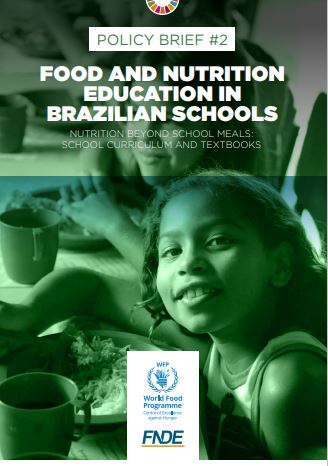 Food and Nutrition Education in Brazilian Schools
Food and Nutrition Education in Brazilian Schools
The publication explains how the Brazilian school feeding programme has integrated food and nutrition education into the school environment. The document provides an overview of food and nutrition education in Brazil and discusses the two paths taken to include it in the basic curriculum of schools and the public policies built to support this strategy.
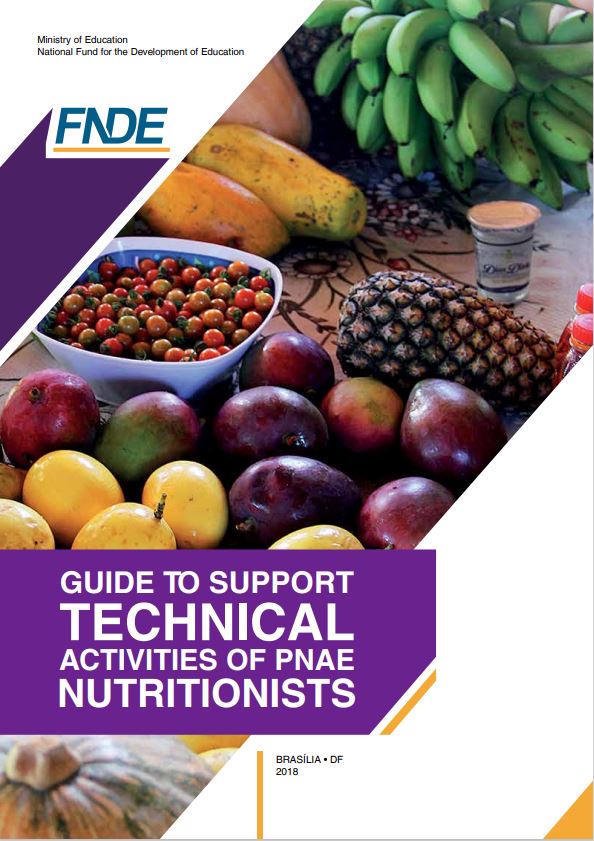 Guide to Support Technical Activities of PNAE Nutritionists
Guide to Support Technical Activities of PNAE Nutritionists
The Food and Nutritional Security Coordination of at PNAE has prepared this handbook with practical guidelines for the execution and operationalization of the attributions of nutritionists in the scope of the Programme, which are of fundamental importance, since the existing materials do not exhaust the topic, and it is necessary to develop new information related to the possibilities of solving the main difficulties and obstacles to the performance of this professional in the PNAE.
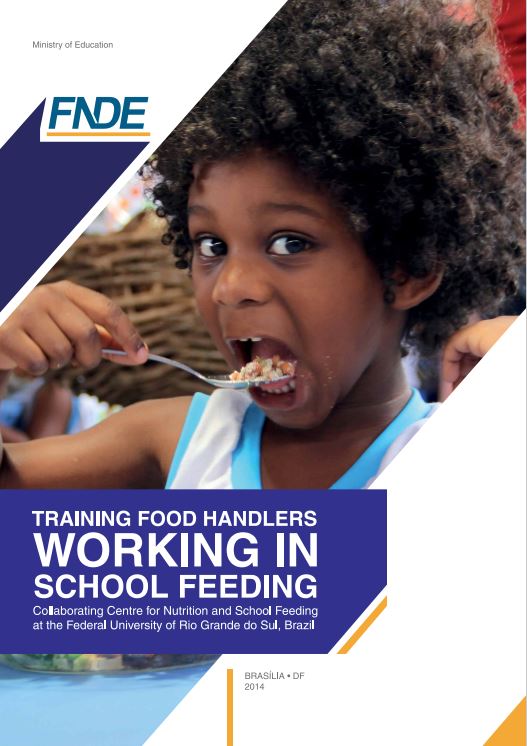 Training Food Handlers Working in School Feeding
Training Food Handlers Working in School Feeding
This publication is a support material, with the objective of providing a theoretical and scientific basis to professionals working in the National School Feeding Programme (PNAE), for the training of food handlers who work in the Programme. This document is aimed at those responsible for training school meals handlers, including managers, pedagogical and school feeding sectors, nutritionists, among others.
PNAE and the CECANEs of the University of Brasília (UnB) and the Federal University of São Paulo (UNIFESP) developed this manual to explain the procedures in a practical way for the application of acceptability tests in the school environment, to ensure compliance with Resolution CD/FNDE No. 26/20132, consolidating the quality control of food offered in school feeding.
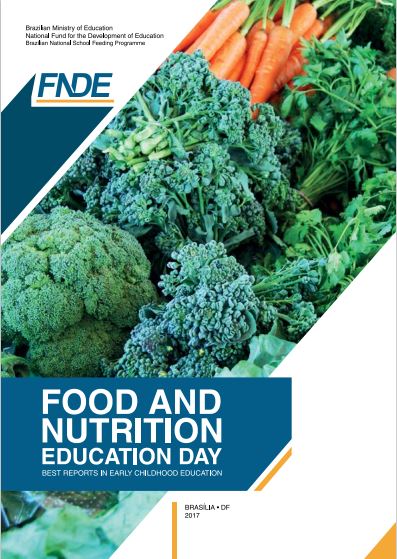 Food and Nutrition Education Day
Food and Nutrition Education Day
This publication is the result of a broad process to encourage debate and the practice of Food and Nutrition Education (EAN) actions in Early Childhood Education. It is a publication that gives visibility to creative and transforming initiatives experienced in different realities in Brazil, expressing the richness, diversity, and power of EAN in Brazilian public schools and showing that this path is possible and is already being taken by different actors.





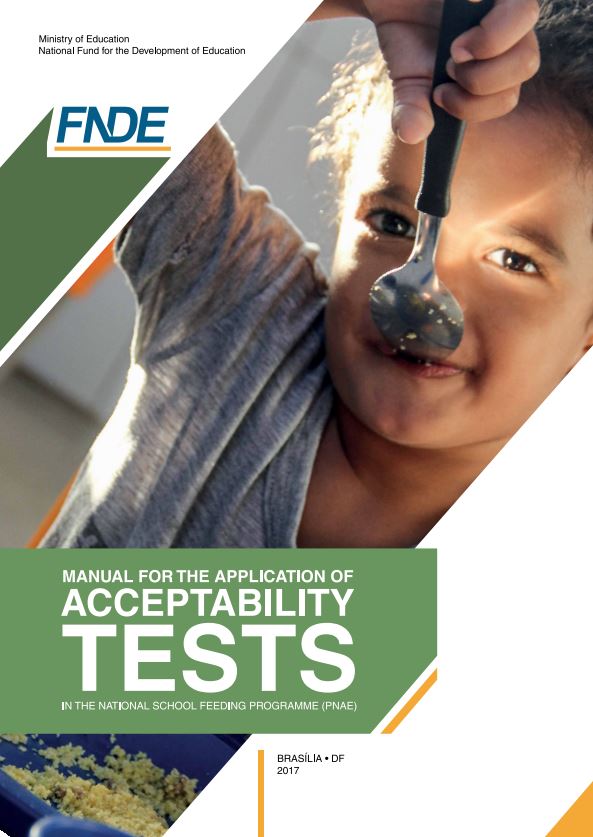 Manual for the Application of the Acceptability Tests in the National School Feeding Programme (PNAE)
Manual for the Application of the Acceptability Tests in the National School Feeding Programme (PNAE)